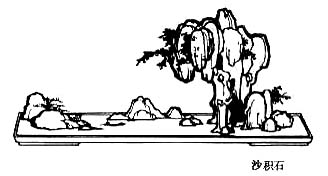Lun Yu 
 – The Analects of Confucius
– The Analects of Confucius
The Master discusses with his disciples and unveil his preoccupations with society. Tr. Legge (en), Lau (en) and Couvreur (fr).
Lunyu V. 8. (100)
Of Tsze-Lû, Tsze-yû, and Tsze-hwâ.
1. Mang Wû asked about Tsze-lû, whether he was perfectly virtuous. The Master said, "I do not know."
2. He asked again, when the Master replied, "In a kingdom of a thousand chariots, Yû might be employed to manage the military levies, but I do not know whether he be perfectly virtuous."
3. "And what do you say of Ch'iû?" The Master replied, "In a city of a thousand families, or a clan of a hundred chariots, Ch'iû might be employed as governor, but I do not know whether he is perfectly virtuous."
4. "What do you say of Ch'ih?" The Master replied, "With his sash girt and standing in a court, Ch'ih might be employed to converse with the visitors and guests, but I do not know whether he is perfectly virtuous."
Legge V.7.
Meng Wu Po asked whether Tzu-lu was benevolent. The Master said, 'I cannot say.' Meng Wu Po repeated the question. The Master said, 'Yu can be given the responsibility of managing the military levies in a state of a thousand chariots, but whether he is benevolent or not I cannot say.' 'What about Ch'iu?' The Master said, 'Ch'iu can be given the responsibility as a steward in a town with a thousand households or in a noble family with a hundred chariots, but whether he is benevolent or not I cannot say.' 'What about Ch'ih?' The Master said, 'When Ch'ih, putting on his sash, takes his place at court, he can be given the responsibility of conversing with the guests, but whether he is benevolent or not I cannot say.'
Lau [5:8]
Meng Ou pe demanda si le sens humain de Tzeu Iou était parfait. Le Maître répondit : « Je ne le sais pas. » Meng Ou pe renouvela la même question. Le Maître répondit : « Iou est capable de former les troupes d'une principauté qui possède mille chariots de guerre. Je ne sais pas si son sens humain est parfait. – Que pensez-vous de K'iou ? » Le Maître répondit : « K'iou est capable de gouverner une ville de mille familles, ou la maison d'un grand préfet, qui a cent chariots de guerre. Je ne sais pas si son sens humain est parfait. » Une principauté qui possède mille chariots de guerre est celle d'un grand prince. Une maison qui a cent chariots de guerre est celle d'un ministre d'État ou d'un grand préfet. Le titre de gouverneur désigne le préfet d'une ville et l'intendant de la maison d'un grand dignitaire. Le préfet d'une ville a la direction des personnes, et l'intendant d'une maison, celle des affaires. (Tchou Hsi)
Meng Ou pe demanda : « Que dites-vous de Tch'eu1 ? » Le Maître répondit : « Tch'eu serait capable de se tenir en habits de cour2 auprès d'un prince, et de converser avec les hôtes et les visiteurs. Je ne sais pas si son sens humain est parfait. »
Couvreur V.7.
b. Ketika ditanya lagi. Nabi bersabda, "You boleh disuruh mengatur angkatan perang suatu negara yang mempunyai seribu kereta perang, tetapi entahlah tentang peri Cinta Kasihnya".
c. "Bagaimanakah tentang Qiu ?" "Qiu boleh disuruh menjadi kepala daerah yang mempunyai seribu keluarga atau suatu marga dengan seratus kereta perang. Tetapi entahlah tentang peri Cinta Kasihnya".
d. "Bagaimana dengan Chi ?" "Chi boleh disuruh memakai pakaian upacara berdiri di istana untuk melayani atau menemui para tamu ; namun entahlah tentang peri Cinta Kasihnya".

The Analects of Confucius – Lun Yu V. 8. (100) – Chinese off/on – Français/English
Alias the Lunyu, the Lun Yü, the Analects, les Entretiens du maître avec ses disciples.
The Book of Odes, The Analects, Great Learning, Doctrine of the Mean, Three-characters book, The Book of Changes, The Way and its Power, 300 Tang Poems, The Art of War, Thirty-Six Strategies
Welcome, help, notes, introduction, table.
Index – Contact – Top























